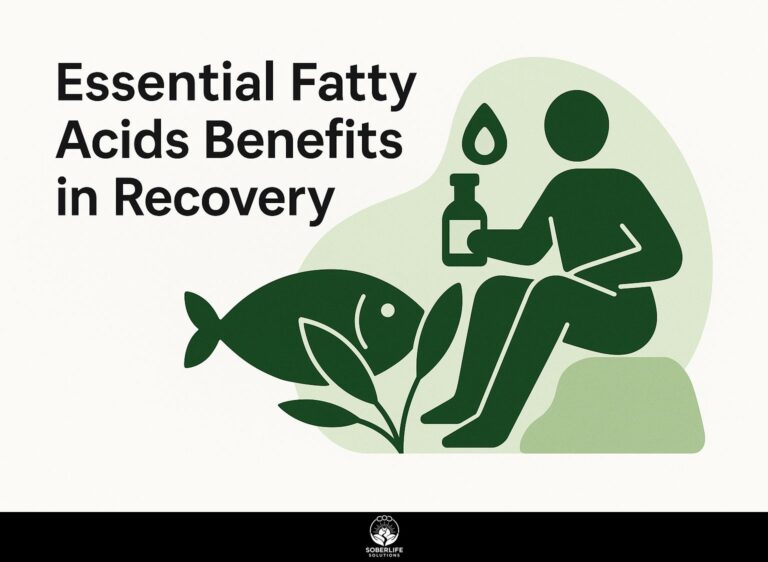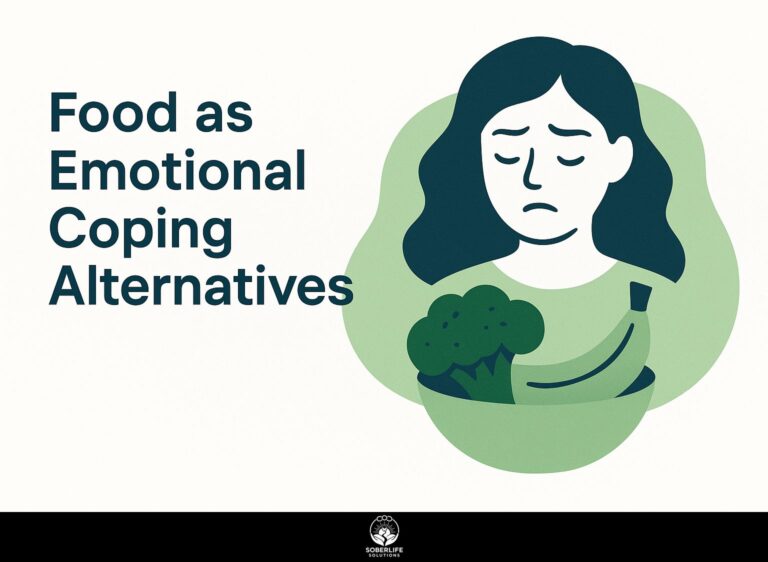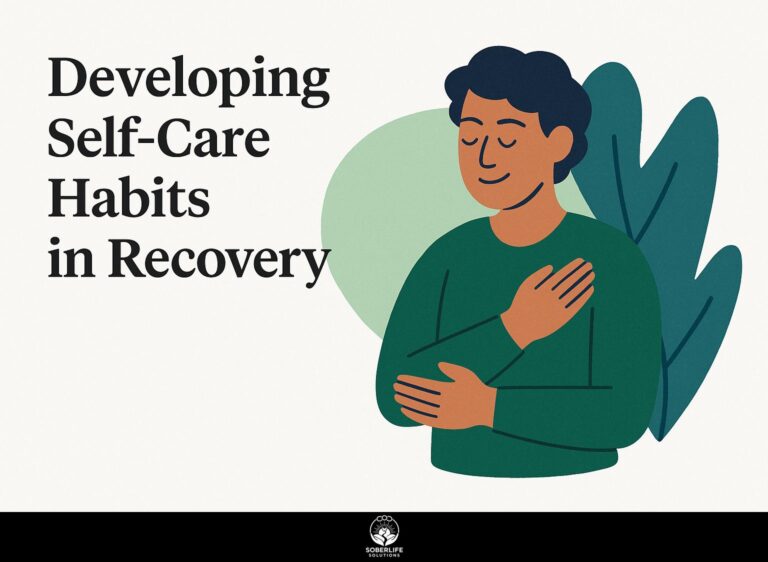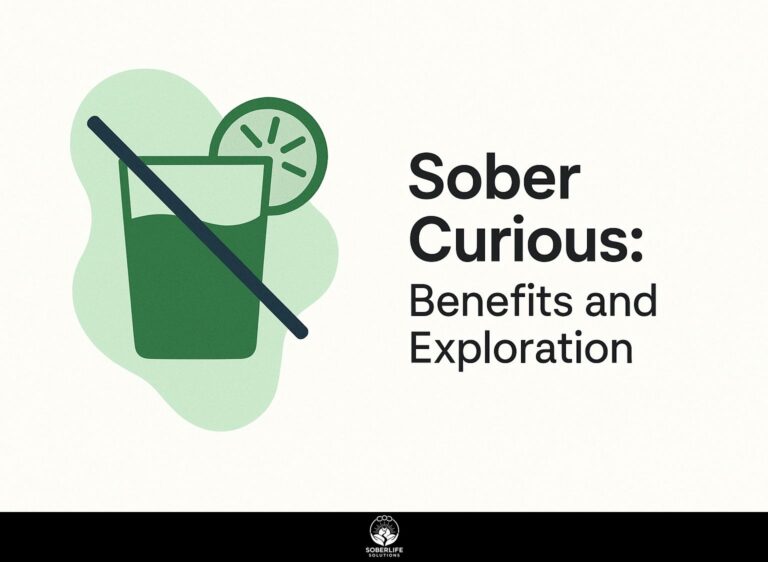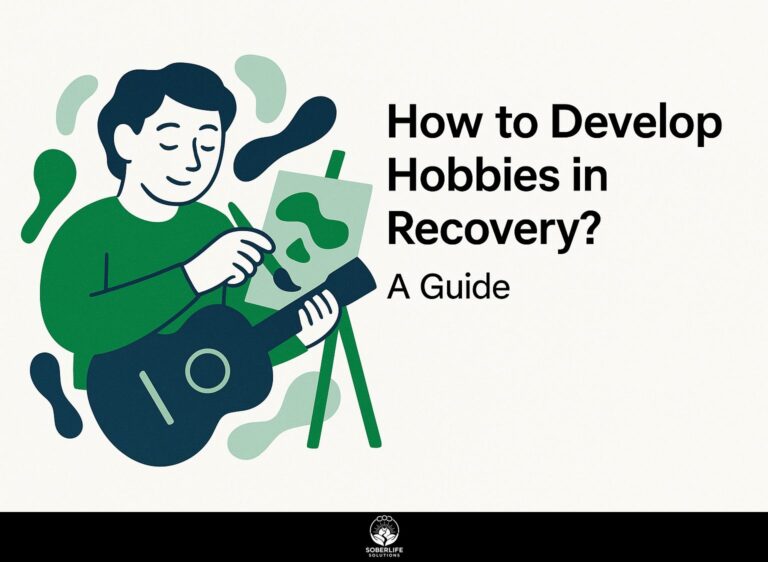How to Develop Sober Friendships
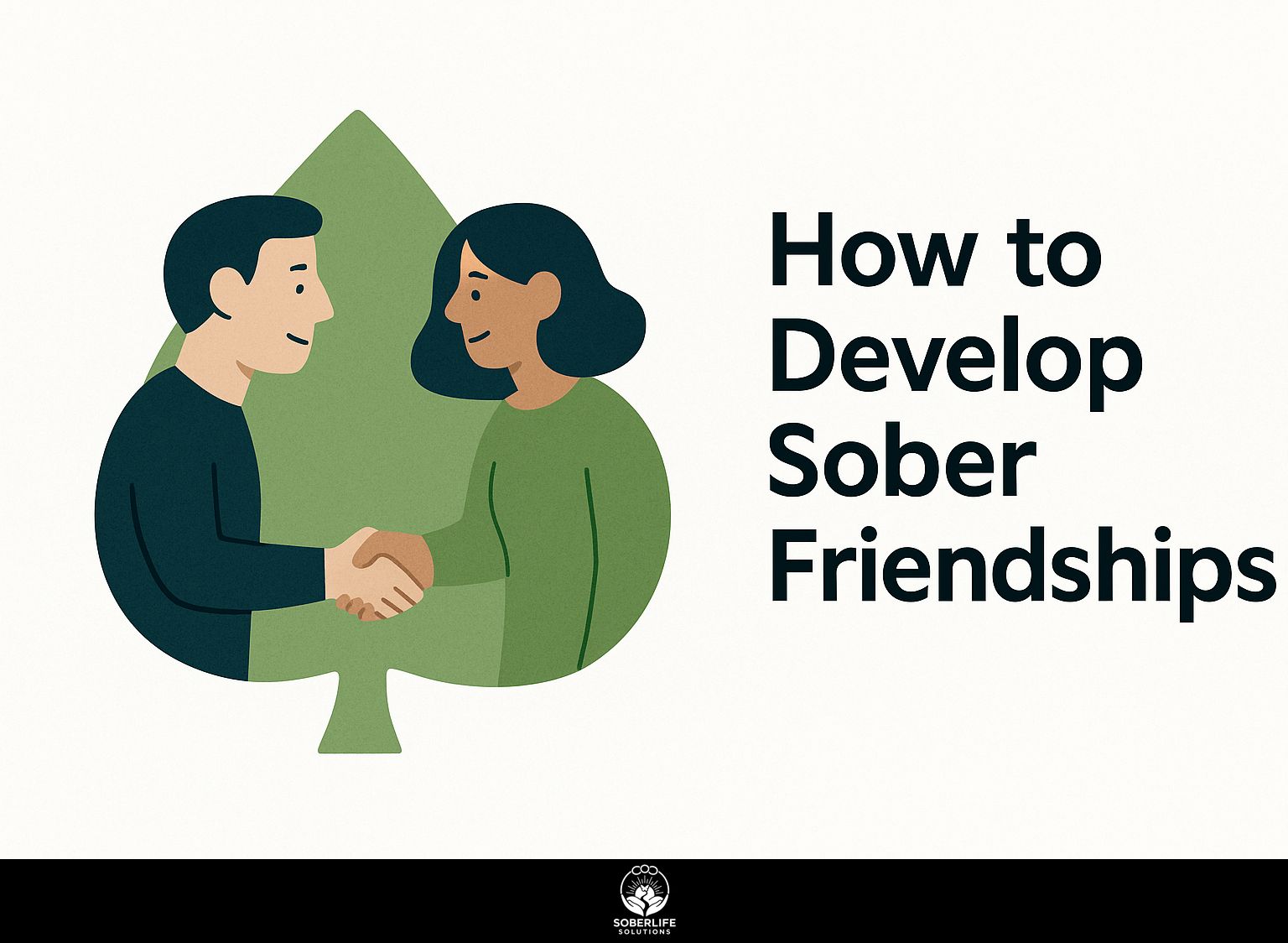
Forming supportive friendships is important for anyone working through addiction recovery. Support groups such as Alcoholics Anonymous and Narcotics Anonymous offer a solid base, but building healthy friendships outside these groups can improve your recovery. In this article, we’ll look at how to recognize your values, meet new people, and grow these important relationships. By learning from the GBAC community, you’ll find ways to build lasting, supportive relationships that improve your life without alcohol.
Key Takeaways:
The Importance of Sober Friendships
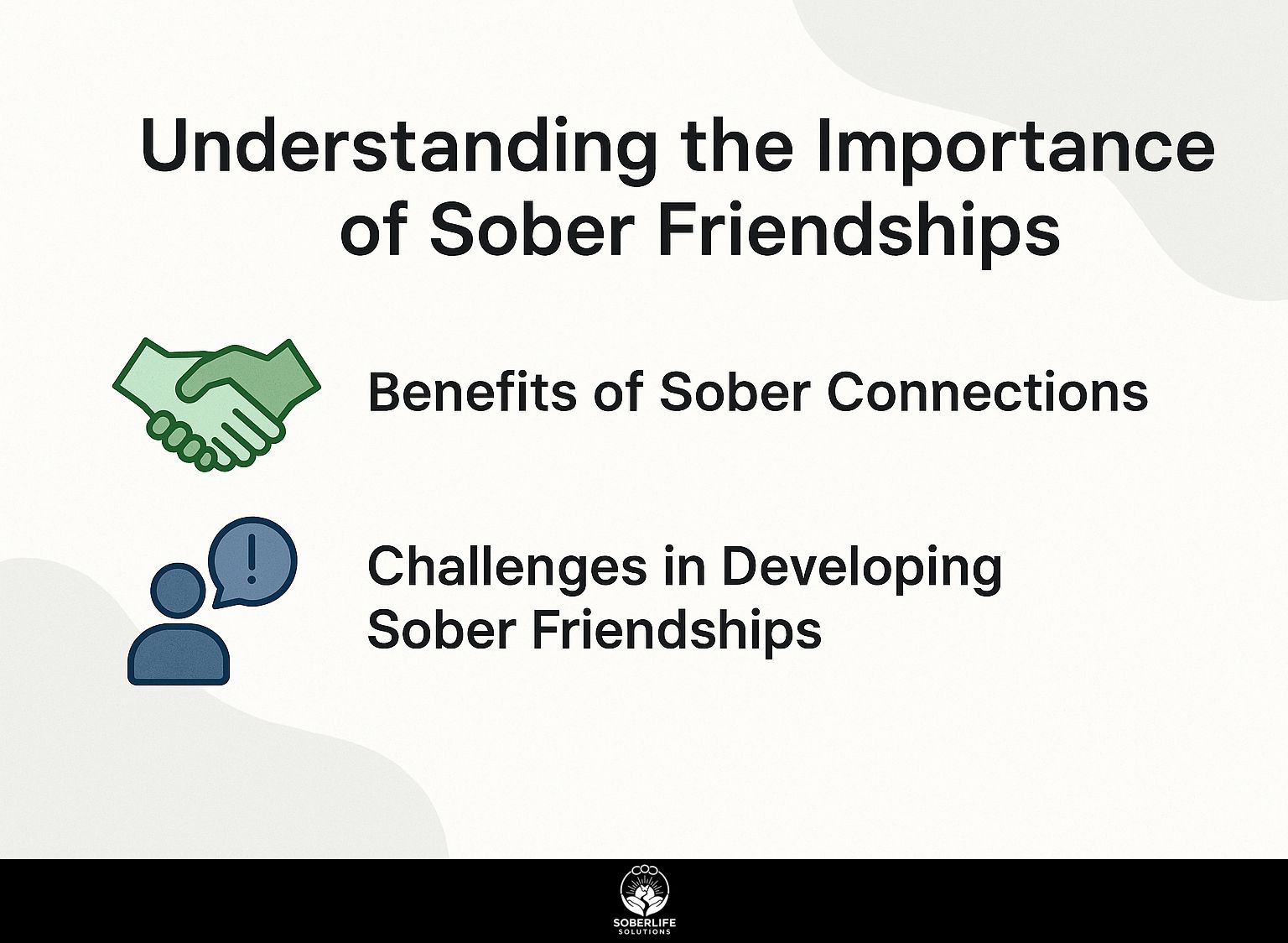
Having friends who don’t drink or use drugs is important in addiction recovery. They offer emotional support and help you stay responsible, which can greatly improve your recovery process. According to ResearchGate, the role of social support is crucial in maintaining long-term recovery from substance addiction. Related insight: Peer Support: Global and Inclusive Best Practices can further enhance the understanding and implementation of effective support systems.
Benefits of Sober Connections
Engaging with sober connections can improve mental health, reduce feelings of isolation, and contribute to personal growth and a healthier lifestyle.
Consider joining local groups such as SMART Recovery or Alcoholics Anonymous to build these relationships. These groups provide a place to share your experiences with others in an organized setting. If interested, you can learn more about the types, benefits, and attendance tips for A.A. meetings.
Online platforms like Sober Grid and Meetup can also connect you with like-minded individuals. Participating in community events or recreational activities, such as yoga or art classes, allows you to diversify your interactions while reinforcing your sobriety.
Find a partner to regularly check in with, which can greatly improve your dedication and offer needed emotional support.
Challenges in Developing Sober Friendships
Forming sober friendships can be challenging due to societal pressures, stigma associated with addiction, and the difficulty of finding like-minded individuals.
To get past these challenges, think about joining wellness groups or recovery-focused platforms such as GBAC or The Walker Center. It’s important to understand the stigma that surrounds addiction, which is thoroughly explored in a detailed article by Johns Hopkins Medicine.
Join local support meetings to meet others who share similar experiences. Joining activities like hiking, yoga classes, or art workshops can help build genuine connections.
Volunteering in your community is another great way to meet altruistic individuals while staying focused on positive experiences.
Building a supportive network takes time and patience, but these avenues can lead to meaningful, lasting friendships.
Identifying Your Values and Interests
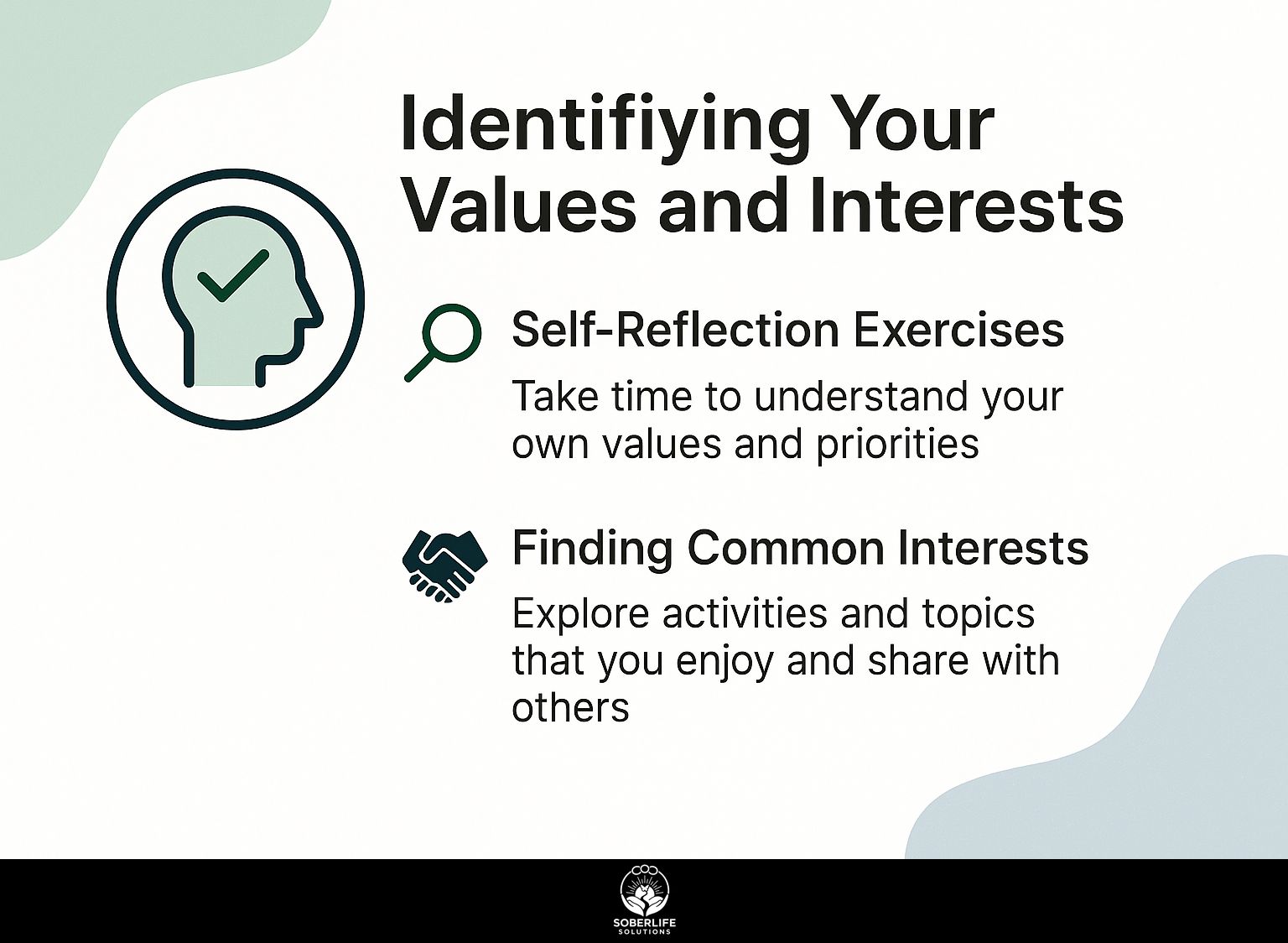
Knowing what matters to you and what you enjoy helps you meet people with similar ways of living, which can make your recovery better. As Harvard Business Review explains, defining and understanding your values is fundamental in identifying who you truly are and finding like-minded individuals. Worth exploring: How to develop hobbies in recovery, which can further enhance the quality of your recovery journey by aligning your interests with your values.
Self-Reflection Exercises
Engage in self-reflection exercises like journaling or meditation to clarify your values and interests, setting a solid foundation for building sober friendships.
After you start thinking about yourself, try certain activities to learn more about your thoughts and feelings.
Start with a list of 10 personal values-this could include honesty, loyalty, or creativity.
Next, create a vision board that visually represents your interests across areas like fitness, art, or career goals.
Think more about your experiences by using questions from ‘The Recovery Book’.
Spending 1-2 hours on these activities can help you learn more about what you want in friendships and build important relationships.
Finding Common Interests
Identifying shared interests is key to forging strong friendships; consider hobbies or community events where these interests can converge.
To connect with people who share your interests, go to local MeetUp events that focus on your hobbies, like photography classes or hiking clubs.
Online forums dedicated to specific hobbies, like gardening or board games, can also connect you with like-minded individuals.
Joining community wellness activities, such as yoga classes or volunteering at local shelters, helps you grow personally and make new friends.
Joining these activities strengthens bonds and enhances your social life through common experiences.
Where to Meet Potential Friends
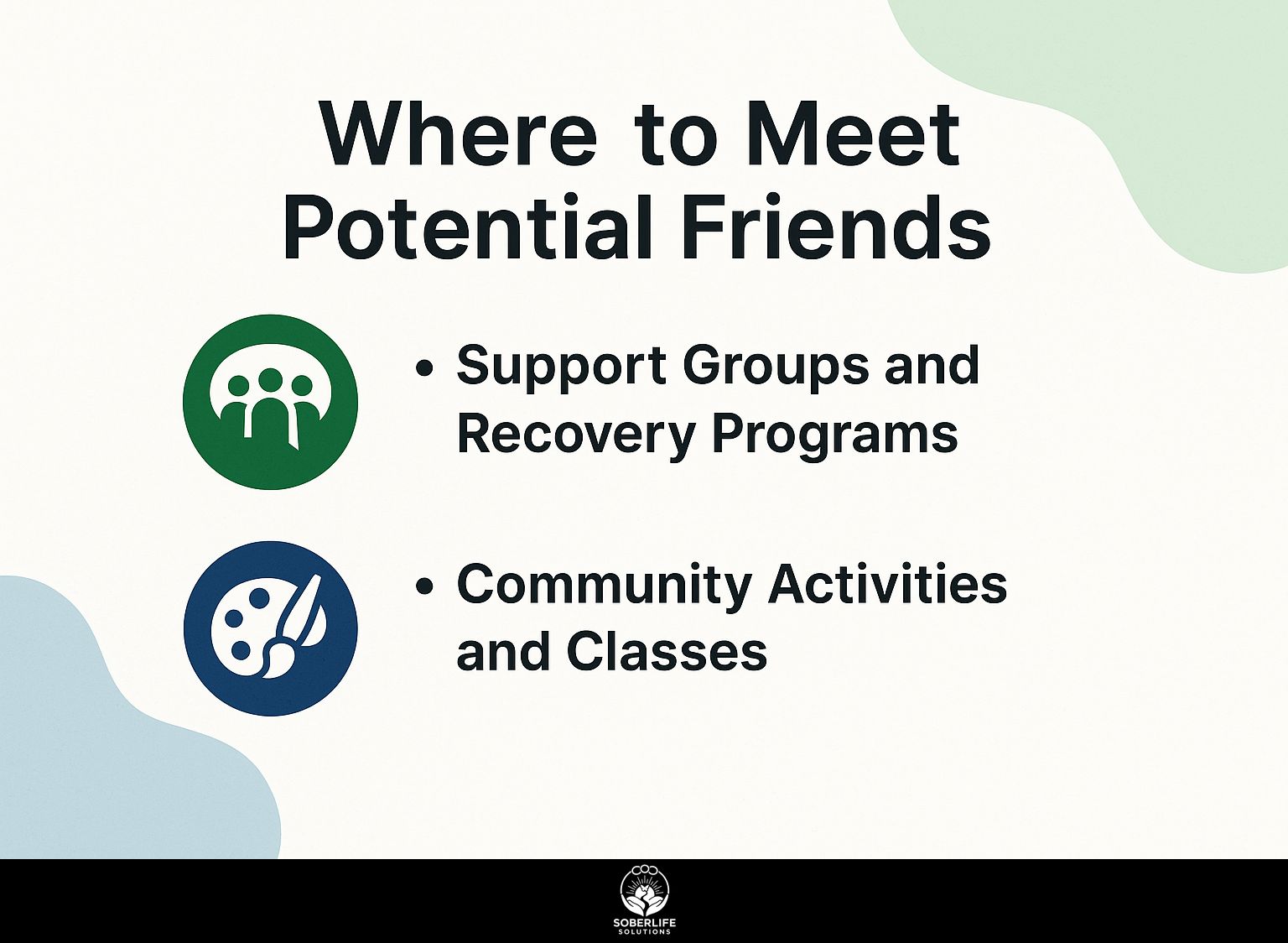
You can meet possible friends in different settings, like organized support groups or informal community events, helping people in recovery build relationships.
Support Groups and Recovery Programs
Support groups like Alcoholics Anonymous and Narcotics Anonymous offer organized spaces where people dedicated to staying sober can meet and connect with each other.
To find local meetings or online support groups, start by visiting the AA website’s meeting finder tool, which allows you to search by location and day.
Apps like ‘Meetup’ list various support groups and events. Regular attendance is important; it helps you form long-term connections with other members. Talking to others often increases your chances of finding someone to support you, which can significantly affect your ability to remain sober.
Many participants report feeling more supported and motivated by sharing their experiences and challenges (our key tips for choosing a support group provide further guidance).
Community Activities and Classes
Participating in community events, such as fitness classes or workshops, provides excellent opportunities to meet new people in a sober environment.
To make the most of these activities, consider exploring specific options. Many cities offer yoga classes on platforms like ClassPass, where you can find sessions that fit your schedule and level.
Volunteering for local charities can connect you with like-minded individuals while contributing positively to your community. Websites like VolunteerMatch offer lists that match your interests.
Keep an eye out for creative workshops on sites like Eventbrite, which often host painting, writing, or cooking classes. Joining these activities improves your skills and helps you make meaningful connections.
Building and Nurturing Connections
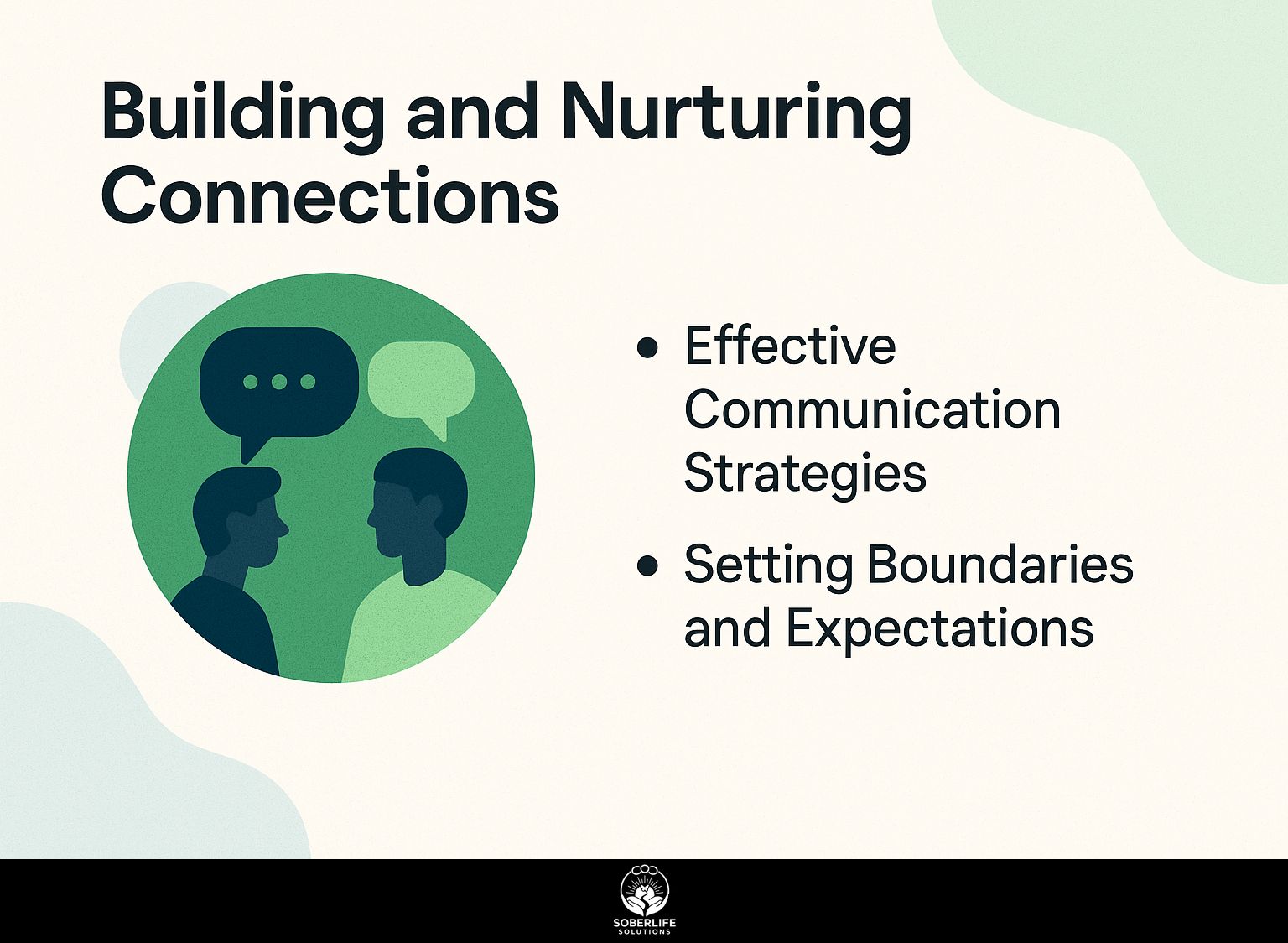
Building strong, stable friendships needs honest communication and respecting boundaries. This is important for relationships to last.
Effective Communication Strategies
Good communication can make friendships stronger. Try to be open and honest when you talk with friends.
One effective strategy is to practice active listening by acknowledging the feelings of your friends. This might include saying, “I hear you,” or just nodding to show you get it.
Use ‘I’ statements to express how you feel. For example, saying “I feel worried when…” can explain your point of view without sounding like you’re blaming someone.
Scheduling regular check-ins, whether through phone calls or in-person meetings, also helps maintain connection. Don’t overlook how much non-verbal signals matter-looking others in the eye and using welcoming body gestures can make you seem more genuine when you communicate.
Setting Boundaries and Expectations
Setting clear limits and expectations is essential for keeping sober relationships healthy, promoting mutual respect and clarity.
To effectively set boundaries, start by identifying your personal triggers, such as specific situations or behaviors that make you uncomfortable.
Next, communicate these triggers to your friends in a direct but considerate manner. For instance, you might say, “I need some space after our group gatherings to recharge.”
Talk about how often you want to communicate and be clear about your preferences. As your relationships develop, be open to reviewing and changing these boundaries to meet everyone’s changing needs.
Maintaining Healthy Sober Friendships
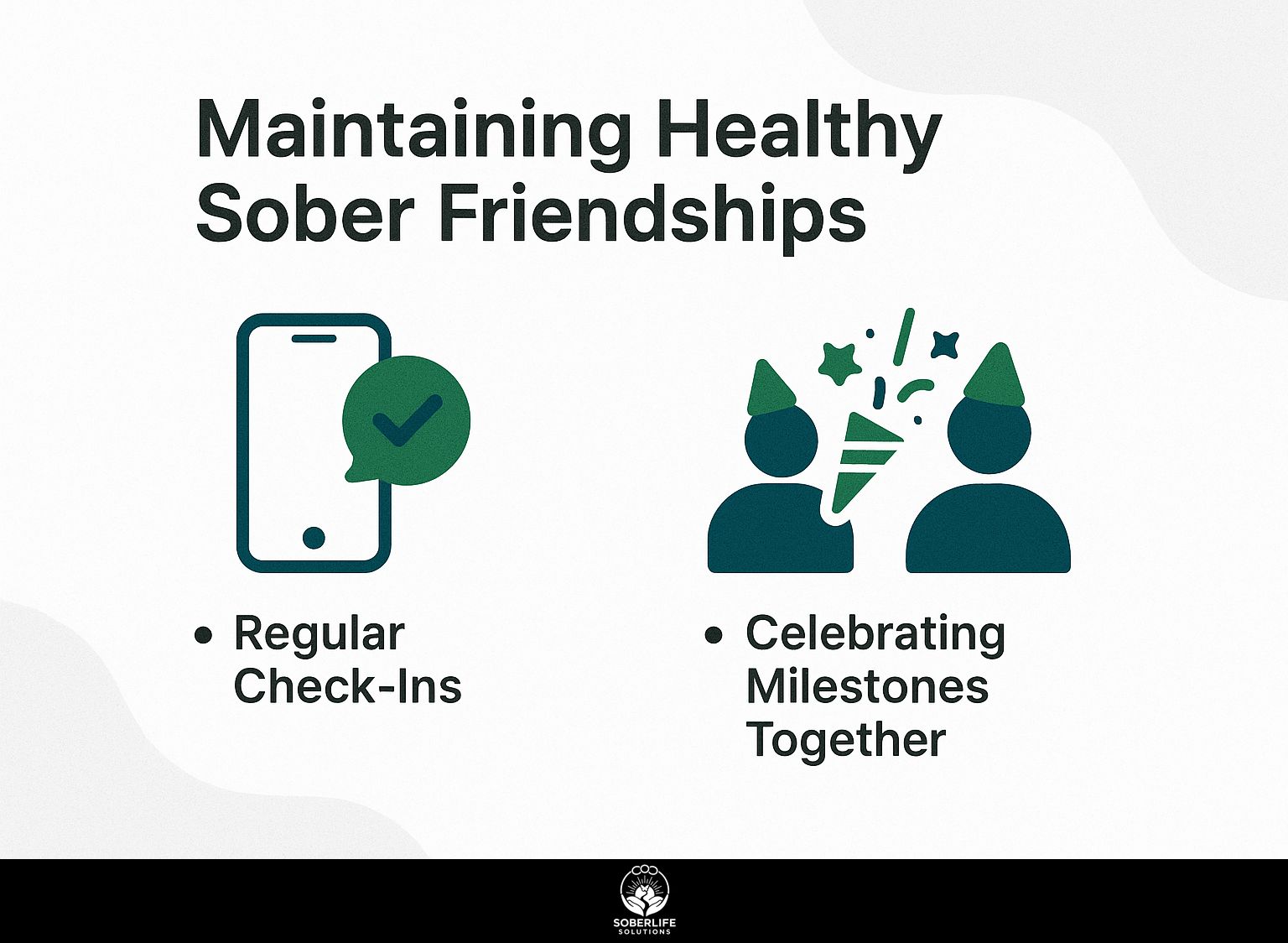
Keeping healthy friendships among those who are sober involves putting in regular effort. This includes staying in touch often and celebrating achievements together to strengthen the connection.
Regular Check-Ins
Setting up regular weekly or monthly meetings helps keep everyone responsible and maintains an active, supportive friendship.
To make these check-ins effective, create recurring events in Google Calendar so everyone receives an early notification.
When you meet, follow a structured format: share your highs and lows to keep the conversation meaningful. A simple messaging app, like WhatsApp, can also facilitate quick updates in between scheduled calls.
For instance, a group of friends struggling with stress found that by committing to a weekly video call, they improved their support for each other, leading to better emotional well-being and strengthened bonds.
Celebrating Milestones Together
Marking milestones like sobriety anniversaries recognizes personal accomplishments and deepens the connection between friends.
Planning a celebration together can take various forms, depending on the group’s interests. For example, plan a dinner at a favorite restaurant or have a potluck at home to create a warm setting.
Alternatively, a group outing to a fitness event or a creative workshop, like pottery or painting, can provide a unique way to commemorate the occasion.
Including everyone in planning creates a sense of shared dedication and support, enhancing relationships and adding meaning to the celebration.
Overcoming Obstacles in Sober Friendships
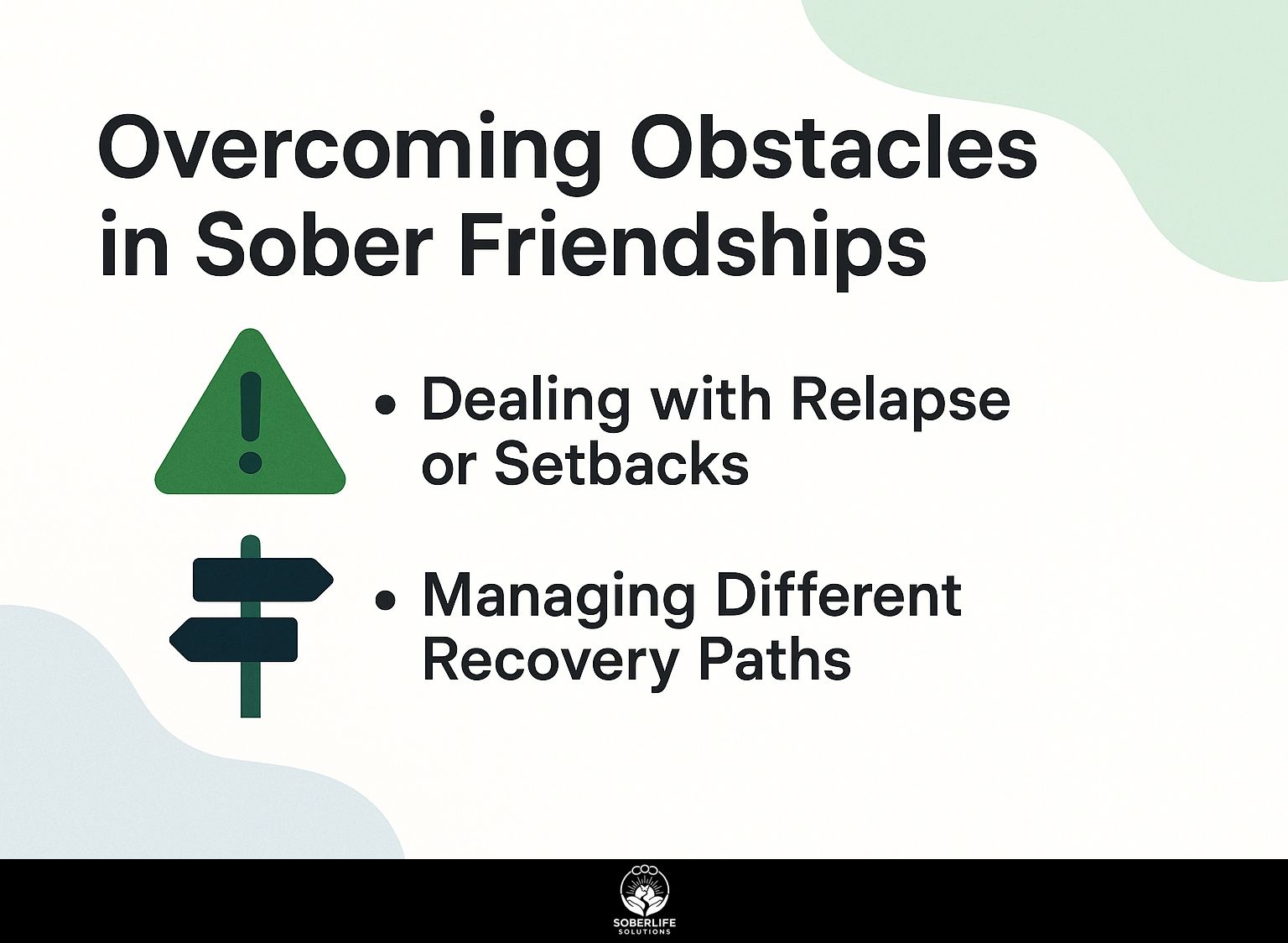
Problems like relapse or using various recovery methods can strain friendships during sobriety, so it’s important to communicate clearly. To better navigate these challenges, it’s beneficial to explore different techniques for maintaining long-term recovery that can support both personal growth and relationship stability.
Dealing with Relapse or Setbacks
Dealing with relapse or setbacks needs kindness and help, and friends are very important in the recovery process.
To effectively support a friend experiencing a relapse, consider these actionable steps:
- Go to support meetings with someone else to build a sense of togetherness.
- Suggest they get professional support by recommending local options such as Dr. Kate Smith’s counseling for individual advice.
- Make it easy for tough conversations by letting them share their feelings without judging them.
For instance, Sarah, who faced a similar setback, found stability after her friend accompanied her to meetings, proving the impact of active support in recovery.
Managing Different Recovery Paths
Recognizing and valuing various recovery methods is key to keeping supportive friendships while going through different experiences in sobriety.
To build strong relationships, begin by talking honestly about what each person wants. Acknowledge that each person may have their own preferences for recovery.
For instance, someone may find support in group therapy, while another may prefer solo activities like journaling. Recommend resources that align with their recovery path, such as wellness groups, podcasts, or books that suit their method of healing.
Try activities like hiking or art classes that can improve health and strengthen your connection. These activities are relaxed and help you appreciate their individual paths.
Frequently Asked Questions
What are sober friendships and why are they important?
Sober friendships are relationships with individuals who do not engage in substance abuse or promote alcohol and drug use. They are important because they provide a supportive and positive influence for maintaining a sober lifestyle.
How can I meet new people and develop sober friendships?
One way to meet new people is by getting involved in activities and organizations that align with your interests and values, such as a volunteer group, fitness class, or hobby club. You can also attend support group meetings or connect with others through online sober communities.
What should I look for in a potential sober friend?
It is important to look for qualities such as honesty, trustworthiness, and a positive attitude in a potential sober friend. They should respect your choice to stay sober and help you with this way of life.
How can I maintain boundaries in my sober friendships?
It’s important to set limits in any relationship, including ones with friends who don’t drink. Be clear about your expectations and communicate openly and honestly with your friend. If they do not respect your boundaries, it may be necessary to re-evaluate the friendship.
What can I do if my current friends are not sober?
If your current friends are not sober, it may be difficult to maintain a sober lifestyle with them. You can try talking to them about your decision to live sober and see if they are willing to support you. If not, you might need to move away from these friendships and find friends who don’t drink.
How can I be a good sober friend to others?
To be a supportive friend to someone staying sober, you can provide support without judging, listen carefully, and suggest healthy activities that don’t involve alcohol. You can also be a positive role model and share your own experiences and successes in sobriety.

